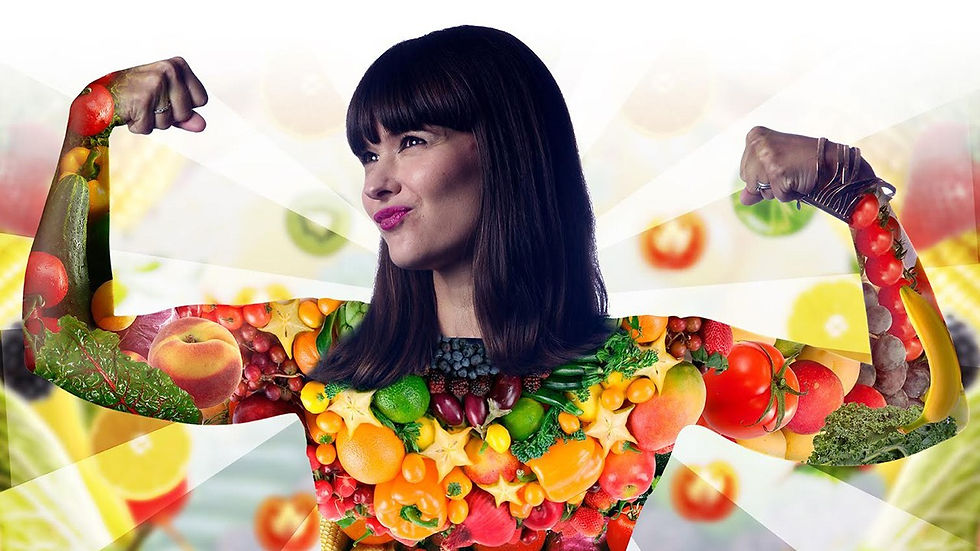In this blog we will discuss about Diet Quotient, Macro & Micro Nutrients, basic introduction to the concept of Quantified Balanced Diet

What is Diet Quotient?:
Do you have your meals on same time daily?
· Yes
· No
Do you feel cravings for sugar, fast food, calorie dense foods?
· Yes
· No
Do you eat outside food?
· Yes
· No
If most of your answers to above questions are in negative then it’s time to develop your understanding about the food.
You are what you eat. As mentioned in the ancient book of Bhagwat Gita, a person eats what he should not eat and slowly leads to his own downfall and finally dies of illness.
Remember when you were in the age group of 15 to 25 you used to eat whatever you want and still never gained any calorie as your Metabolism rate was high but slowly when you start working and start sitting at one place for hours and at the same time increase your calorie intake you start gaining weight as your Metabolism rate got affected, hence you slowly succumb to many illness.
Imbalance in Diet causes illness like High Cholesterol, Type 2 Diabetes, Blood Pressure, Obesity, Acidity etc.
You have to maintain a balanced diet and maintain right amount of macro and micro nutrients.
As we all know Protein, Carbohydrates, Fats form your Macronutrients and Vitamins, minerals, Phytochemicals form the Micronutrients. We need Macros in large quantity while need the Macros in smaller quantity but they are essential for good health. In the chapter ahead we will learn how to calculate your own macros.
Macro-nutrients in Diet:
Carbohydrates:
Carbs are major source of energy for our body and get stored in muscles and liver for later use.
Rich source: Simple Carbs: Sugar, Fruits etc. Complex Carbs: Grains (rice, oats, barley etc.), Roots (potatoes, yams, carrots etc.), Veggies (broccoli, cauliflower, squash, dark leafy greens, green beans, onions, cucumbers, oatmeal, sweet potatoes, potatoes and quinoa) etc.
Carbs provide 4 calories of energy per gram.
Proteins:
Proteins are required by body to grow tissue and muscle. It helps to repair organ damage and to create hormones and enzymes. Proteins are used as energy source when energy from Carbs is not available.
Rich source of Proteins are Chicken, Eggs, Meat, fatty fish (salmon, sea bass), cod, turkey, nuts, beans, dairy and legumes etc.
Proteins provide 4 calories of energy per gram.
Fats:
Fats are very important for absorbing vitamins in your body. They help to maintain healthy hormone balance, metabolism etc.
Rich source of Fats are cooking oils, butter, nuts, cheese, coconut oil, olive oil, avocado and cashews etc.
Fats provide 9 calories of energy per gram.
Micro-nutrients in Diet:
Micro-nutrients are very important group of nutrients that your body demands. It includes Vitamins and Minerals.
Vitamins help in energy production, blood clotting, immunity and many other processes. Minerals help in growth, bone health, fluid balance and many other processes.
Vitamins:
Vitamins are organic compounds made by animals and plants which get broken down by heat, acidic reactions and oxygen.
Minerals:
Unlike Vitamins, Minerals are inorganic, they exist in soil or water and cannot be broken up.
Quantified Balanced Diet
In the Quantified Balanced Diet Plan, the diet plan is based on a person’s BMR (Basal Metabolism Rate) and Body Fat Percentage we help devise a balanced diet plan. In the next blog ahead we will explain this concept in details and will also show a sample diet plan.
Nutrition plays a bigger role than exercise. Nutrition is 70% while exercise is merely 30%. If you wish to reduce weight and ignore this then whatever you do through exercise will not suffice.
FittQ’s Quantified Balanced Diet plan takes care of quality and quantity of the food. Remember that Diet is a fuel for body just like the petrol for a car. We always demand good quality Petrol, so we demand good quality food but we do not give importance to the Macros or the quantity that we are having and hence the excessive calories start affecting your Metabolism and start depositing as Fat in the body.
How many calories do you need per day?
Have you ever wondered how many calories do you need a day? If not then I will give you a simple formula to understand it. It is called as BMR (Basal Metabolic Ratio). It is explained in a chapter ahead where we discuss our FittQ Quantified Balanced Diet Plan.
FittQGurus help you to improve your Diet Quotient this shows a great transformation in individual.
We have testimony of Shashank. He joined our 24 week Quantified Balanced Diet Programme. These are exactly his words, “I hate the Quantified Balanced Diet Plan of FittQ. It changed my appearance so much that every time I am traveling I had to explain the security that it’s me. Guys jokes apart. I am really thankful to you for transforming my life. I love the way I look now. I am soon getting married and invite Team FittQ. Thanks a ton for everything.” Shashank is 29yo he is 5’8” and weighed around 104kgs. FittQGurus helped him lose around 30kgs. He was depressed as his marriage was not getting fixed, but look at his testimony.
Now this is why we love our work. :)
FittQ is always there to guide you in your quest to healthy life.
FittQ.com is a fitness consultancy which provides Personal Training and Corporate Wellness. follow : https://www.fittq.com/ or WhatsApp on 9892866356


Comments